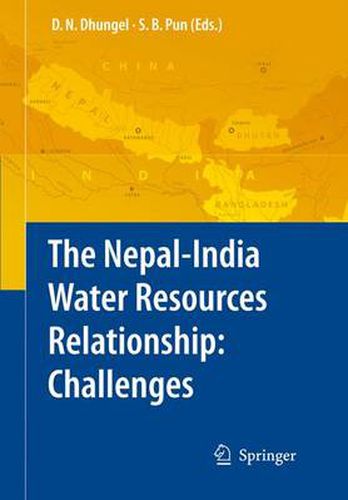Readings Newsletter
Become a Readings Member to make your shopping experience even easier.
Sign in or sign up for free!
You’re not far away from qualifying for FREE standard shipping within Australia
You’ve qualified for FREE standard shipping within Australia
The cart is loading…






This title is printed to order. This book may have been self-published. If so, we cannot guarantee the quality of the content. In the main most books will have gone through the editing process however some may not. We therefore suggest that you be aware of this before ordering this book. If in doubt check either the author or publisher’s details as we are unable to accept any returns unless they are faulty. Please contact us if you have any questions.
Since its establishment as a policy research institute in 1990, the Institute for In- grated Development Studies (IIDS) has been engaged in promoting public awa- ness and understanding of issues of national importance by undertaking studies and research on contemporary themes. It has been disseminating findings of its studies to policymakers in the public and private sectors and ultimately to the public at large. Water resources is one of the areas of strong public interest in Nepal. It is cons- ered a potent engine of economic growth. Its optimal use is dependent on, among other things, the cooperation among the riparian countries, especially India and Bangladesh. Water resources development is one of the subjects in which the Ins- tute has been engaged since its beginning by undertaking studies through national professionals and joint studies on the water resources of the Ganges, Brahmaputra and Meghna river basins with policy research institutes from India and Bangladesh. In order to help policymakers to develop long-term perspectives of the need for cooperation for optimal use of water available in the tributaries of the Ganges, the Institute was involved in a major track-two exercise for over five years during the 1990s. The Institute has been undertaking a series of exercises in the form of p- lication and dissemination of study findings in the field since the early 1990’s. In that series, this book is the latest one and is published in collaboration with Springer Science + Business Media BV, Dordrecht, The Netherlands.
$9.00 standard shipping within Australia
FREE standard shipping within Australia for orders over $100.00
Express & International shipping calculated at checkout
This title is printed to order. This book may have been self-published. If so, we cannot guarantee the quality of the content. In the main most books will have gone through the editing process however some may not. We therefore suggest that you be aware of this before ordering this book. If in doubt check either the author or publisher’s details as we are unable to accept any returns unless they are faulty. Please contact us if you have any questions.
Since its establishment as a policy research institute in 1990, the Institute for In- grated Development Studies (IIDS) has been engaged in promoting public awa- ness and understanding of issues of national importance by undertaking studies and research on contemporary themes. It has been disseminating findings of its studies to policymakers in the public and private sectors and ultimately to the public at large. Water resources is one of the areas of strong public interest in Nepal. It is cons- ered a potent engine of economic growth. Its optimal use is dependent on, among other things, the cooperation among the riparian countries, especially India and Bangladesh. Water resources development is one of the subjects in which the Ins- tute has been engaged since its beginning by undertaking studies through national professionals and joint studies on the water resources of the Ganges, Brahmaputra and Meghna river basins with policy research institutes from India and Bangladesh. In order to help policymakers to develop long-term perspectives of the need for cooperation for optimal use of water available in the tributaries of the Ganges, the Institute was involved in a major track-two exercise for over five years during the 1990s. The Institute has been undertaking a series of exercises in the form of p- lication and dissemination of study findings in the field since the early 1990’s. In that series, this book is the latest one and is published in collaboration with Springer Science + Business Media BV, Dordrecht, The Netherlands.